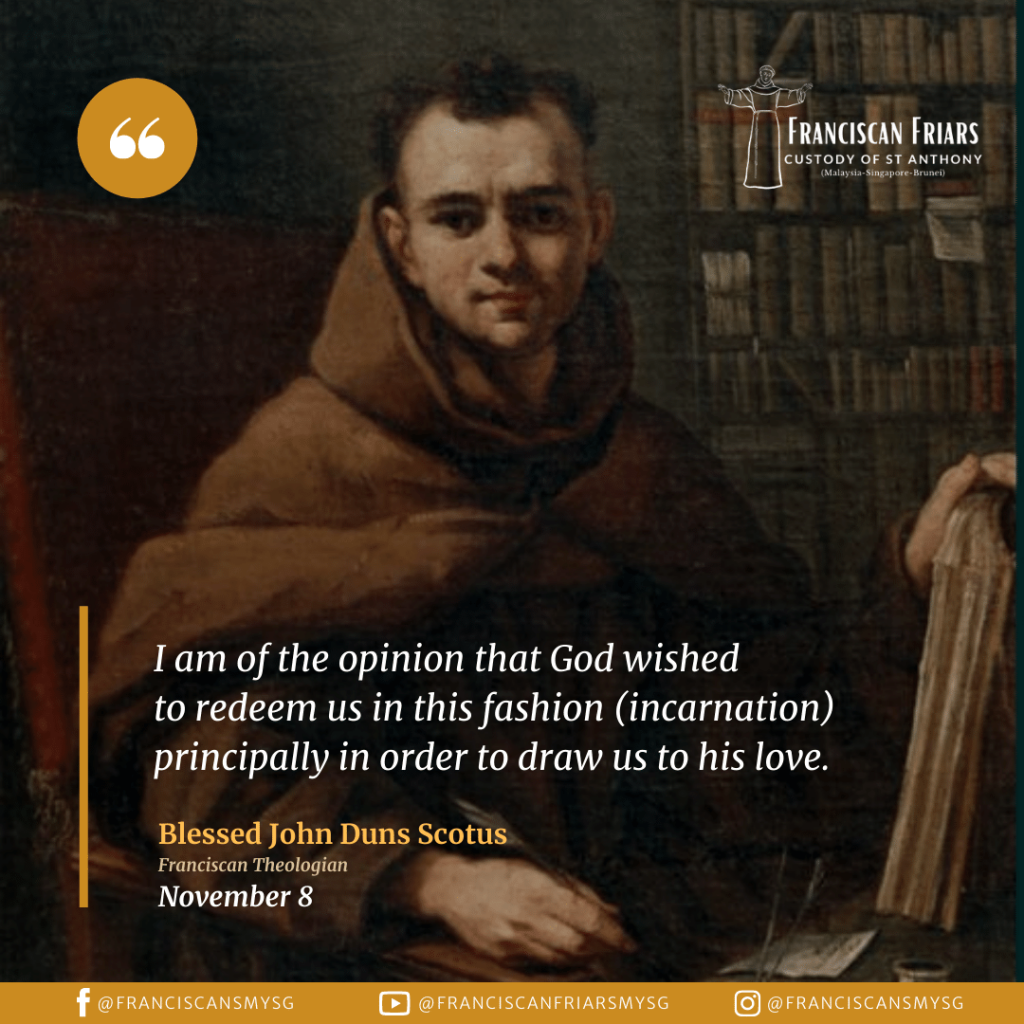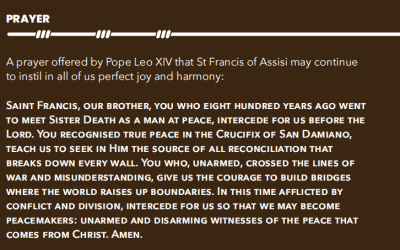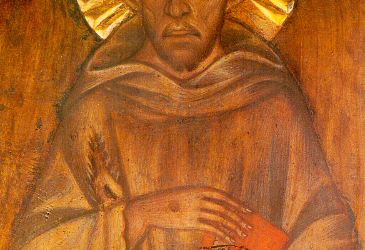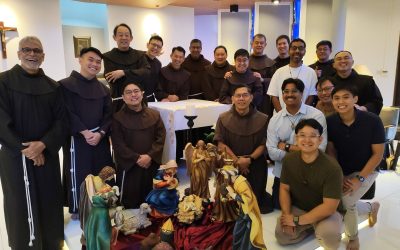
John Duns, later known as the Subtle Doctor, was called Scotus on account of his birth in Scotland. He entered the Franciscans at the age of fifteen and was later ordained a priest. After studies in Oxford and Paris, he went on to hold teaching positions in Paris and Cologne, where he was acclaimed as one of the greatest of the Scholastic theologians. His mystically charged theology held particular charm for the Franciscans, rendering in philosophical terms the creation-centered spirituality of their holy founder.
Like other scholastic theologians, Duns Scotus tried to present a philosophical “proof” for the existence of God. In his case, he focused on the observation that all things require some prior cause for their existence. From this, he predicated the existence of a primary infinite cause which owes its existence to itself alone. Yet he drew a distinction between what could be “proved” by reason and what could be known only by faith. There was a difference between a rational knowledge of the existence of God and a saving knowledge of the love of God.
Duns Scotus defined God as infinite love. He taught that the incarnation was not required as payment for sin; it was willed through eternity as an expression of God’s love, and hence God’s desire for consummated union with creation. Our redemption by the cross was likewise an expression of God’s love and compassion rather than an appeasement of God’s anger or a form of compensation for God’s injured majesty. He believed that knowledge of God’s love should evoke a loving response on the part of humanity. He wrote, “I am of the opinion that God wished to redeem us in this fashion principally in order to draw us to his love.” Through our own loving self-gift, he argued, we join with Christ in becoming “co-lovers” of the Holy Trinity.
“I am of the opinion that God wished to redeem us in this fashion principally in order to draw us to his love.”
– Blessed John Duns Scotus
Unlike philosophers in the line of Plato, Scotus did not value the ideal at the expense of the real. Created things pointed to their Creator not only by their conformity to an ideal pattern but by their individuality and uniqueness—what he termed their “thisness” (haecceitas). Thus, the path to contemplation should proceed not only through the mind but through the senses. This insight of Scotus especially endeared him to the most highly distinctive of Catholic poets, the Jesuit Gerard Manley Hopkins. He paid tribute to the Subtle Doctor in one of his poems:
Of realty the rarest-veined unraveller; a not Rivalled insight, be rival Italy or Greece.
Duns Scotus died on November 8, 1308. He was beatified in 1993.
Source : The Franciscan Saints (Franciscan Media)





0 Comments